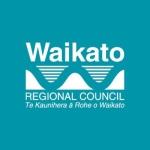Major possum control savings mooted
Possible ways of making multi-million dollar savings on possum control are outlined in a draft Regional Pest Management Strategy (RPMS) discussion document received yesterday by the regional pest management committee.
The savings could be used to keep overall council expenditure down or redeployed into more targeted pest control in the most high value ecological areas, said biosecurity and heritage group manager John Simmons.
The report said savings were possible by using techniques such as:
* Treating larger areas at a time, allowing for the extension of possum control retreatment intervals
* Ending the "maintain the gains" policy of automatically re-treating areas no longer covered by Animal Health Board possum control and focusing on the highest value ecological sites instead
* Using multi-year pest control contracts to help tenderers keep their costs down.
If these sorts of changes were made it was predicted possum control costs could fall from a predicted $40 million over ten years to $29 million, the discussion document said.
It suggested a "proof of concept" trial for these sorts of methods could be initially focused on an area of north-west Waikato, with the new model introduced elsewhere if it proved successful.
The discussion document calls for community comment on the points raised.
Meanwhile, the document also asks the community for its thoughts on controlling Canada geese, which are seen as a significant pest by farmers. However, they are viewed as a game bird by some.
Recently, the Minister of Conservation decided the geese would no longer need to be managed as a hunting resource and they can be killed by anyone.
The discussion document said geese numbers had increased in the Waikato. In some parts large numbers of geese ate grass grown for stock, they fouled paddocks and contributed to water quality problems. Hunting alone was judged to be insufficient to control them.
"However, whether this situation requires intervention by the regional council needs further debate," the document said. This included looking at who should pay for the control.
